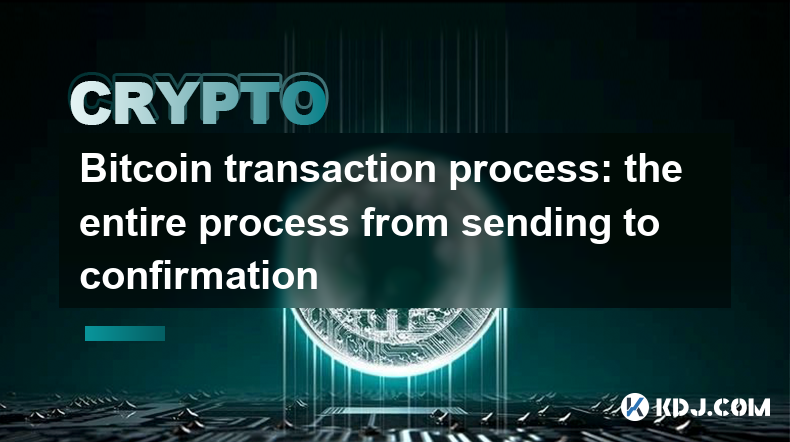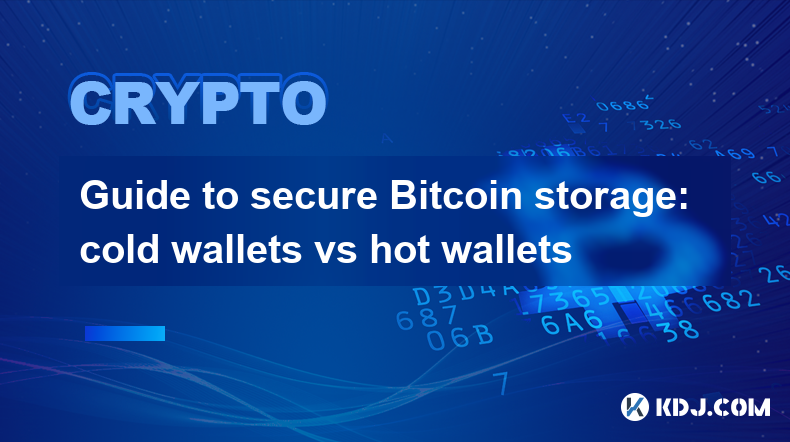-
 Bitcoin
Bitcoin $84,603.0303
1.65% -
 Ethereum
Ethereum $1,628.2638
2.58% -
 Tether USDt
Tether USDt $0.9997
0.00% -
 XRP
XRP $2.1442
1.55% -
 BNB
BNB $586.1953
0.71% -
 Solana
Solana $129.6970
2.29% -
 USDC
USDC $0.9998
-0.02% -
 TRON
TRON $0.2518
-0.50% -
 Dogecoin
Dogecoin $0.1586
-2.40% -
 Cardano
Cardano $0.6343
-0.80% -
 UNUS SED LEO
UNUS SED LEO $9.3746
-0.17% -
 Avalanche
Avalanche $20.1994
3.26% -
 Chainlink
Chainlink $12.7466
0.99% -
 Stellar
Stellar $0.2381
-0.55% -
 Sui
Sui $2.1883
-1.27% -
 Shiba Inu
Shiba Inu $0.0...01199
-0.40% -
 Toncoin
Toncoin $2.8442
-1.19% -
 Hedera
Hedera $0.1656
0.38% -
 Bitcoin Cash
Bitcoin Cash $324.3031
-5.45% -
 Polkadot
Polkadot $3.7104
0.32% -
 Litecoin
Litecoin $76.9539
-0.90% -
 Dai
Dai $0.9999
-0.01% -
 Hyperliquid
Hyperliquid $15.5187
1.91% -
 Bitget Token
Bitget Token $4.2785
-0.04% -
 Pi
Pi $0.7383
-0.07% -
 Ethena USDe
Ethena USDe $0.9989
0.00% -
 Monero
Monero $215.8052
6.03% -
 Uniswap
Uniswap $5.3859
0.83% -
 OKB
OKB $52.8701
-0.49% -
 Pepe
Pepe $0.0...07327
0.90%
Bitcoin transaction process: the entire process from sending to confirmation
Bitcoin transactions involve sending, broadcasting, mining, and confirming, ensuring secure value transfer across the globe.
Apr 11, 2025 at 06:42 am

Bitcoin transactions are a fundamental aspect of the cryptocurrency ecosystem, enabling users to transfer value across the globe securely and efficiently. Understanding the entire process from sending to confirmation is crucial for anyone involved in the Bitcoin network. This article will delve into the detailed steps involved in a Bitcoin transaction, highlighting the key stages and the roles of various participants in the process.
Initiating a Bitcoin Transaction
The process of sending Bitcoin begins with the sender, who needs to initiate the transaction. This typically involves using a Bitcoin wallet, which can be a software application, a hardware device, or even a paper wallet.
- Open your Bitcoin wallet and navigate to the section where you can send Bitcoin.
- Enter the recipient's Bitcoin address, which is a unique string of alphanumeric characters that identifies the recipient's wallet.
- Specify the amount of Bitcoin you wish to send. Ensure you double-check the amount to avoid errors.
- Set the transaction fee, which incentivizes miners to include your transaction in the blockchain. Higher fees can result in faster confirmation times.
- Review the transaction details carefully, including the recipient's address, the amount, and the fee.
- Confirm the transaction by entering your wallet's password or using a private key, depending on the wallet's security settings.
Once you confirm the transaction, it is broadcast to the Bitcoin network.
Broadcasting the Transaction
After the sender initiates the transaction, it is broadcast to the Bitcoin network. This involves sending the transaction data to multiple nodes on the network, which are essentially computers running Bitcoin software.
- The transaction data includes the sender's and recipient's addresses, the amount of Bitcoin being transferred, and the transaction fee.
- Nodes on the network verify the transaction's validity by checking the sender's signature and ensuring that the sender has the necessary funds.
- Valid transactions are then relayed to other nodes, spreading the transaction across the network.
This process ensures that the transaction reaches miners, who play a crucial role in confirming transactions.
Mining and Transaction Confirmation
Miners are responsible for confirming transactions and adding them to the Bitcoin blockchain. They do this by solving complex mathematical problems, a process known as mining.
- Miners collect a pool of unconfirmed transactions, including the one you initiated, into a block.
- They compete to solve a cryptographic puzzle, which requires significant computational power.
- The first miner to solve the puzzle gets to add the block of transactions to the blockchain and is rewarded with newly minted Bitcoin and transaction fees.
- Once a block is added to the blockchain, the transactions within it are considered confirmed.
However, a single confirmation is not always sufficient for high-value transactions. Many users wait for multiple confirmations to ensure the transaction's security.
Waiting for Confirmations
The number of confirmations required can vary based on the transaction's value and the recipient's requirements.
- One confirmation is generally considered secure for small transactions.
- For larger transactions, waiting for six confirmations is a common practice, as it significantly reduces the risk of a double-spend attack.
- Each confirmation occurs when a new block is added to the blockchain, which happens approximately every 10 minutes.
During this waiting period, the transaction's status can be monitored using a blockchain explorer, a tool that allows users to view transaction details and confirmations.
Finalizing the Transaction
Once the required number of confirmations is reached, the transaction is considered finalized. The recipient can now access the Bitcoin in their wallet.
- The recipient's wallet will update to reflect the incoming Bitcoin.
- The sender's wallet will show the outgoing transaction and the updated balance.
- Both parties can now consider the transaction complete and secure.
At this point, the Bitcoin has successfully moved from the sender to the recipient, completing the transaction process.
Frequently Asked Questions
Q: Can a Bitcoin transaction be reversed once it is confirmed?
A: No, once a Bitcoin transaction is confirmed and added to the blockchain, it cannot be reversed. This is one of the key features of Bitcoin, ensuring the security and immutability of transactions.
Q: What happens if a transaction fee is set too low?
A: If a transaction fee is set too low, miners may prioritize other transactions with higher fees, leading to delays in confirmation. In some cases, the transaction may remain unconfirmed for an extended period or be dropped from the mempool.
Q: How can I check the status of a Bitcoin transaction?
A: You can check the status of a Bitcoin transaction using a blockchain explorer. Enter the transaction ID (TXID) into the explorer, and it will show you the current status, including the number of confirmations and the block in which it was included.
Q: Is it possible to speed up a Bitcoin transaction after it has been broadcast?
A: Yes, it is possible to speed up a Bitcoin transaction by using a feature called Replace-By-Fee (RBF). If your wallet supports RBF, you can rebroadcast the transaction with a higher fee, which may encourage miners to prioritize it.
Disclaimer:info@kdj.com
The information provided is not trading advice. kdj.com does not assume any responsibility for any investments made based on the information provided in this article. Cryptocurrencies are highly volatile and it is highly recommended that you invest with caution after thorough research!
If you believe that the content used on this website infringes your copyright, please contact us immediately (info@kdj.com) and we will delete it promptly.
- Vaulta Emerges from Its Past with a Renewed Focus on Practical Finance and Compliance-First Blockchain Infrastructure
- 2025-04-15 04:50:13
- Render Network (RNDR), SEI and Bittensor (TAO) lead crypto AI sector despite 5% daily drop
- 2025-04-15 04:50:13
- HYPE is showing early signs of a bullish reversal, with a potential inverse head and shoulders pattern forming
- 2025-04-15 04:45:13
- BlockDAG (BDAG) Captures Developer Attention with Complete Smart Contract Features and Growing $214M Presale
- 2025-04-15 04:45:13
- title: RWA-Focused Crypto Project MANTRA (OM) Loses $5.431B of Market Cap in Overnight Collapse of Its Native Token
- 2025-04-15 04:40:15
- Trump's Tariffs Just Supercharged Bitcoin – Here's What's Coming
- 2025-04-15 04:40:15
Related knowledge

What is Bitcoin halving? Analysis of the impact on prices
Apr 09,2025 at 01:14pm
Bitcoin halving is a pivotal event in the cryptocurrency world that occurs approximately every four years, or every 210,000 blocks. The event is designed to reduce the rate at which new bitcoins are generated, thereby controlling inflation and increasing scarcity over time. During a halving, the reward that miners receive for successfully adding a block...

What to do if Bitcoin is stolen? Security protection and recovery possibilities
Apr 09,2025 at 03:42pm
If your Bitcoin is stolen, it can be a distressing experience, but there are steps you can take to protect your remaining assets and attempt to recover your lost funds. This article will guide you through the process of securing your Bitcoin and exploring recovery possibilities. Immediate Actions After Bitcoin TheftThe moment you realize your Bitcoin ha...

How to avoid Bitcoin investment scams? Common scams revealed
Apr 10,2025 at 05:14pm
Introduction to Bitcoin Investment ScamsBitcoin and other cryptocurrencies have become increasingly popular investment options, attracting both seasoned investors and newcomers alike. However, with the rise in popularity, there has also been a surge in Bitcoin investment scams. These scams can range from Ponzi schemes to fake exchanges and fraudulent in...

Guide to secure Bitcoin storage: cold wallets vs hot wallets
Apr 11,2025 at 08:42am
Guide to Secure Bitcoin Storage: Cold Wallets vs Hot Wallets When it comes to storing Bitcoin, security is paramount. The choice between cold wallets and hot wallets can significantly impact the safety of your digital assets. This guide delves into the differences between these two types of wallets, their respective advantages and disadvantages, and how...

What is Bitcoin fork? Differences between BTC, BCH, and BSV
Apr 10,2025 at 02:21am
A Bitcoin fork refers to a change in the underlying protocol of the Bitcoin blockchain, which results in a divergence into two separate versions of the blockchain. This can happen as a result of a disagreement within the community about the direction of the cryptocurrency, or to introduce new features or improvements. There are two main types of forks: ...

The role of Bitcoin wallets: public keys, private keys and security analysis
Apr 09,2025 at 03:00am
Bitcoin wallets play a crucial role in the world of cryptocurrency, serving as the gateway to securely store, send, and receive Bitcoin. Understanding the intricacies of Bitcoin wallets, particularly the concepts of public keys, private keys, and security analysis, is essential for anyone looking to navigate the cryptocurrency landscape safely and effec...

What is Bitcoin halving? Analysis of the impact on prices
Apr 09,2025 at 01:14pm
Bitcoin halving is a pivotal event in the cryptocurrency world that occurs approximately every four years, or every 210,000 blocks. The event is designed to reduce the rate at which new bitcoins are generated, thereby controlling inflation and increasing scarcity over time. During a halving, the reward that miners receive for successfully adding a block...

What to do if Bitcoin is stolen? Security protection and recovery possibilities
Apr 09,2025 at 03:42pm
If your Bitcoin is stolen, it can be a distressing experience, but there are steps you can take to protect your remaining assets and attempt to recover your lost funds. This article will guide you through the process of securing your Bitcoin and exploring recovery possibilities. Immediate Actions After Bitcoin TheftThe moment you realize your Bitcoin ha...

How to avoid Bitcoin investment scams? Common scams revealed
Apr 10,2025 at 05:14pm
Introduction to Bitcoin Investment ScamsBitcoin and other cryptocurrencies have become increasingly popular investment options, attracting both seasoned investors and newcomers alike. However, with the rise in popularity, there has also been a surge in Bitcoin investment scams. These scams can range from Ponzi schemes to fake exchanges and fraudulent in...

Guide to secure Bitcoin storage: cold wallets vs hot wallets
Apr 11,2025 at 08:42am
Guide to Secure Bitcoin Storage: Cold Wallets vs Hot Wallets When it comes to storing Bitcoin, security is paramount. The choice between cold wallets and hot wallets can significantly impact the safety of your digital assets. This guide delves into the differences between these two types of wallets, their respective advantages and disadvantages, and how...

What is Bitcoin fork? Differences between BTC, BCH, and BSV
Apr 10,2025 at 02:21am
A Bitcoin fork refers to a change in the underlying protocol of the Bitcoin blockchain, which results in a divergence into two separate versions of the blockchain. This can happen as a result of a disagreement within the community about the direction of the cryptocurrency, or to introduce new features or improvements. There are two main types of forks: ...

The role of Bitcoin wallets: public keys, private keys and security analysis
Apr 09,2025 at 03:00am
Bitcoin wallets play a crucial role in the world of cryptocurrency, serving as the gateway to securely store, send, and receive Bitcoin. Understanding the intricacies of Bitcoin wallets, particularly the concepts of public keys, private keys, and security analysis, is essential for anyone looking to navigate the cryptocurrency landscape safely and effec...
See all articles























































































